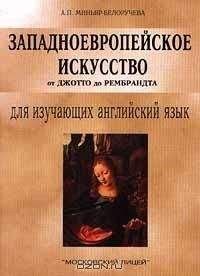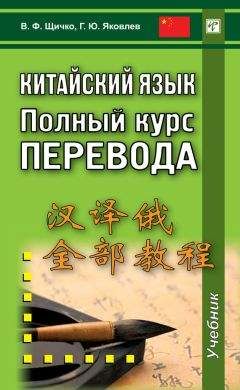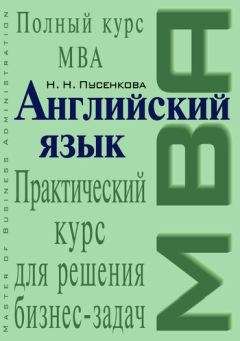Илья Франк - Английский язык с Грэмом Грином. Третий человек
"I mean would you put him among the really great?"
"If you want to know, I've never heard of him. What did he write?"
He didn't realise it (он не сознавал этого), but he was making an enormous impression (но он производил огромное впечатление). Only a great writer could have taken so arrogant, so original a line (только великий писатель мог взять такой высокомерный, такой оригинальный тон: «линию»): several people wrote Zane Grey's name on the backs of envelopes (несколько людей написали имя Зейна Грея на оборотах конвертов) and the Gräfin whispered hoarsely to Crabbin (а графия прошептала хрипло Крэббину), "How do you spell Zane (как пишется «Зейн»)?"
"To tell you the truth (сказать вам правду), I'm not quite sure (я не вполне уверен)." A number of names were simultaneously flung at Martins (некоторое число имен были одновременно брошены в Мартинса; to fling — швырять)—little sharp pointed names like Stein (маленькие, острые, отточенные имена, такие как Стайн), round pebbles like Woolf (круглые камешки, как Вулф). A young Austrian with an ardent intellectual black forelock called out "Daphne du Maurier," (молодой австриец с романтичной интеллектуальной черной прядью прокричал «Дафна дю Морье») and Mr. Crabbin winced and looked sideways at Martins (и мистер Крэббин вздрогнул и посмотрел искоса на Мартинса; to wince — вздрагивать, морщиться /напр., от боли/). He said in an undertone (он сказал вполголоса), "Be kind to them (будьте милостивы к ним)."
A gentle kind faced woman in a hand-knitted jumper said wistfully (тихая, с добрым лицом, женщина в рукодельном: «рукой связанном» джемпере сказала задумчиво; wistful — тоскующий; томящийся, горящий желанием; задумчивый /о взгляде, улыбке/), "Don't you agree, Mr. Dexter (не согласитесь ли вы, мистер Декстер), that no one, no one has written about feelings so poetically as Virginia Woolf (что никто, никто не написал о чувствах столь поэтично, как Вирджиния Вулф)? in prose I mean (в прозе, я имею в виду)."
Crabbin whispered (Крэббин прошептал), "You might say something about the stream of consciousness (вы могли бы сказать что-нибудь о потоке сознания)."
"Stream of what (поток чего)?"
A note of despair came into Crabbin's voice (нота отчаяния появилась в голосе Крэббина), "Please, Mr. Dexter, these people are your genuine admirers (пожалуйста, мистер Декстер, эти люди — ваши настоящие поклонники). They want to hear your views (они хотят услышать ваши взгляды). If you knew how they have besieged the Society (если бы вы знали, как они осаждали Общество; siege — осада; to besiege — блокировать, окружить /воен./; осаждать /просьбами, вопросами/)."
An elderly Austrian said (престарелый австриец сказал), "Is there any writer in England today of the stature of the late John Galsworthy (есть ли какой-нибудь писатель в Англии сегодня масштаба покойного Джона Голсуорси)?"
There was an outburst of angry twittering (был = произошел взрыв негодующего гомона; twittering — щебетание; to twitter — щебетать) in which the names of Du Maurier, Priestley and somebody called Layman were flung to and fro (в котором имена Дю Морье, Пристли и кого-то по имени Лэйман были кидаемы туда-сюда). Martins sat gloomily back (Мартинс сел = откинулся хмуро назад; gloom — мрак; темнота; сумрак, тьма; депрессия, мрачность; уныние) and saw again the snow, the stretcher, the desperate face of Frau Koch (и увидел снова снег, носилки, отчаянное лицо фрау Кох). He thought (он подумал): if I had never returned (если бы я так и не вернулся), if I had never asked questions (если бы я так и не задавал вопросы), would that little man still be alive (был ли бы этот маленький человек все еще жив)? How had he benefited Harry (как он помог Гарри) by supplying another victim (добавив еще одну жертву; to supply — поставлять)—a victim to assuage the fear of whom (жертву, чтобы успокоить страх кого; to assuage — успокаивать /гнев и т. п./; облегчать, смягчать /горе, боль/), Herr Kurtz (герра Куртца), Cooler (Кулера) (he could not believe that (он не мог поверить в это), Dr. Winkler (доктора Винклера)? Not one of them seemed adequate to the drab gruesome crime in the basement (ни один из них не казался подходящим для унылого жестокого преступления в подвале; drab — тускло-коричневый; желтовато-серый; темный, темного оттенка; гнетущий, мрачный, неинтересный, однообразный, пресный, серый, скучный): he could hear the child saying (он мог слышать, как ребенок говорит): "I saw the blood on the coke (я видел кровь на коксе)," and somebody turned towards him a blank face without features (и кто-то повернул к нему пустое лицо без черт), a grey plasticine egg (серое пластилиновое яйцо), the third man (третий человек).
Martins could not have said how he got through the rest of the discussion (Мартинс не мог бы сказать, как он пробрался через остаток дискуссии): perhaps Crabbin took the brunt (возможно, Крэббин принял основной удар; brunt — нападение, напор, натиск; сила, главный удар /атаки, нападения/): perhaps he was helped by some of the audience (возможно, ему помогли некоторые из аудитории: «он был поддержан некоторыми из аудитории») who got into an animated discussion about the film version of a popular American novel (которые вступили в оживленную дискуссию об экранизации: «фильмовой версии» популярного американского романа). He remembered very little more (он помнил очень мало больше = еще) before Crabbin was making a final speech in his honour (прежде чем Крэббин говорил финальную речь в его честь). Then one of the young men led him to a table stacked with books (тогда один из молодых людей подвел его к столу, заваленному книгами; stack — омет, скирда, стог /о сене/; груда, куча; to stack — складывать в стог и пр., скирдовать; загромождать, заставлять /чем-л./) and asked him to sign them (и попросил его подписать их). "We have only allowed each member one book (мы позволили каждому члену только одну книгу)."
"What have I got to do (что я должен делать)?"
"Just a signature (просто подпись). That's all they expect (это все, что они ожидают). This is my copy of The Curved Prow (это мой экземпляр Изогнутой ладьи). I would be so grateful (я был бы так благодарен) if you'd just write a little something (если бы вы просто написали немного чего-нибудь)..."
enormous [In'O:mqs], arrogant ['xrqugqnt], envelope ['envqlqup], hoarse [hO:s], ardent ['Rd(q)nt], intellectual ["Int(q)'lektjuql], despair [dI'speq], besiege [bI'si:G], adequate ['xdIkwIt], gruesome ['gru:sqm], plasticine ['plxstI"si:n], audience ['O:djqns], animated ['xnImeItId]
He didn't realise it, but he was making an enormous impression. Only a great writer could have taken so arrogant, so original a line: several people wrote Zane Grey's name on the backs of envelopes and the Gräfin whispered hoarsely to Crabbin, "How do you spell Zane?"
"To tell you the truth, I'm not quite sure." A number of names were simultaneously flung at Martins—little sharp pointed names like Stein, round pebbles like Woolf. A young Austrian with an ardent intellectual black forelock called out "Daphne du Maurier," and Mr. Crabbin winced and looked sideways at Martins. He said in an undertone, "Be kind to them."
A gentle kind faced woman in a hand-knitted jumper said wistfully, "Don't you agree, Mr. Dexter, that no one, no one has written about feelings so poetically as Virginia Woolf? in prose I mean."
Crabbin whispered, "You might say something about the stream of consciousness."
"Stream of what?"
A note of despair came into Crabbin's voice, "Please, Mr. Dexter, these people are your genuine admirers. They want to hear your views. If you knew how they have besieged the Society."
An elderly Austrian said, "Is there any writer in England today of the stature of the late John Galsworthy?"
There was an outburst of angry twittering in which the names of Du Maurier, Priestley and somebody called Layman were flung to and fro. Martins sat gloomily back and saw again the snow, the stretcher, the desperate face of Frau Koch. He thought: if I had never returned, if I had never asked questions, would that little man still be alive? How had he benefited Harry by supplying another victim—a victim to assuage the fear of whom, Herr Kurtz, Cooler (he could not believe that), Dr. Winkler? Not one of them seemed adequate to the drab gruesome crime in the basement: he could hear the child saying: "I saw the blood on the coke," and somebody turned towards him a blank face without features, a grey plasticine egg, the third man.
Martins could not have said how he got through the rest of the discussion: perhaps Crabbin took the brunt: perhaps he was helped by some of the audience who got into an animated discussion about the film version of a popular American novel. He remembered very little more before Crabbin was making a final speech in his honour. Then one of the young men led him to a table stacked with books and asked him to sign them. "We have only allowed each member one book."
"What have I got to do?"
"Just a signature. That's all they expect. This is my copy of The Curved Prow. I would be so grateful if you'd just write a little something ..."
Martins took his pen and wrote (Мартинс взял свою ручку и написал): "From B. Dexter (от Б. Декстера), author of The Lone Rider of Santa Fé (автора «Одинокого всадника из Санта-Фе»)," and the young man read the sentence (и молодой человек прочитал предложение) and blotted it with a puzzled expression (и промокнул его с озадаченным выражением /лица/). As Martins sat down and started signing Benjamin Dexter's title pages (когда Мартинс сел и начал подписывать титульные листы Бенджамина Декстера), he could see in a mirror the young man showing the inscription to Crabbin (он мог видеть в зеркале молодого человека, показывающего надпись Крэббину). Crabbin smiled weakly and stroked his chin (Крэббин слабо улыбнулся и погладил свой подбородок), up and down, up and down (вверх и вниз). "B. Dexter, B. Dexter, B. Dexter." Martins wrote rapidly (Мартинс писал быстро)—it was not after all a lie (это не было, в конце концов, ложью). One by one the books were collected by their owners (одна за одной книги были собраны их владельцами): little half sentences of delight and compliment were dropped like curtseys (маленькие полупредложения радости и любезности были обронены, равно как поклоны)—was this what it was to be a writer (неужели именно это и значило быть писателем)? Martins began to feel distinct irritation towards Benjamin Dexter (Мартинс начал испытывать явное раздражение по отношению к Бенджамину Декстеру). The complacent tiring pompous ass (самодовольный, утомительный = занудный, напыщенный осел), he thought (подумал он), signing the twenty-seventh copy of The Curved Prow (подписывая двадцать седьмой экземпляр «Изогнутой ладьи»; prow — нос корабля). Every time he looked up and took another book (каждый раз, когда он поднимал взгляд и брал еще одну: «другую» книгу) he saw Crabbin's worried speculative gaze (он видел обеспокоенный задумчивый взгляд Крэббина). The members of the Institute were beginning to go home with their spoils (члены Института начинали расходиться домой со своими трофеями): the room was emptying (комната пустела). Suddenly in the mirror Martins saw a military policeman (внезапно в зеркале Мартинс увидел военного полицейского). He seemed to be having an argument with one of Crabbin's young henchmen (он, казался, имел спор = спорил о чем-то с одним из юных приспешников Крэббина; henchman — последователь, "правая рука", поборник, сторонник; приспешник). Martins thought he caught the sound of his own name (Мартинс подумал = ему показалось, что он уловил звук его собственного имени). It was then he lost his nerve (это было тогда, что = именно тогда он потерял самообладание: «свой нерв») and with it any relic of commonsense (и с ним какой-либо остаток здравого смысла). There was only one book left to sign (оставалась подписать только одну книгу): he dashed off a last "B. Dexter" (он нацарапал последнего «Б. Декстера»; to dash off — набросать, быстро написать; to dash — наносить сокрушающий удар, разбивать вдребезги, расколачивать; бросить, швырнуть; делать набросок, эскиз /любого произведения/) and made for the door (и направился к двери). The young man, Crabbin and the policeman stood together at the entrance (молодой человек, Крэббин и полицейский стояли вместе у входа).




